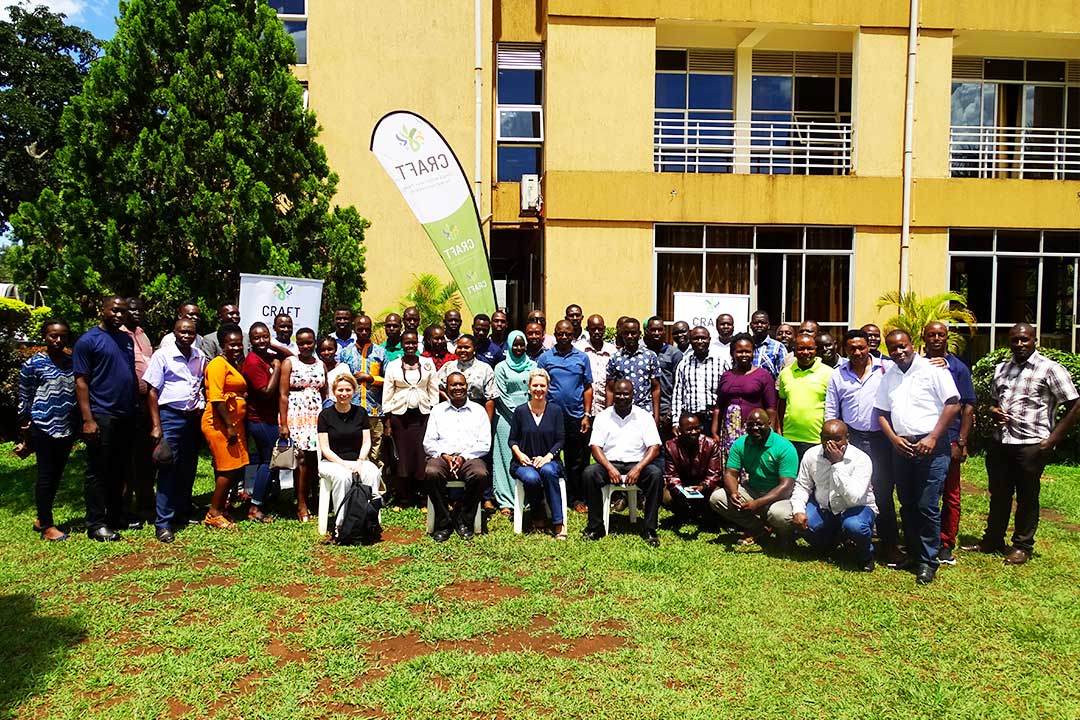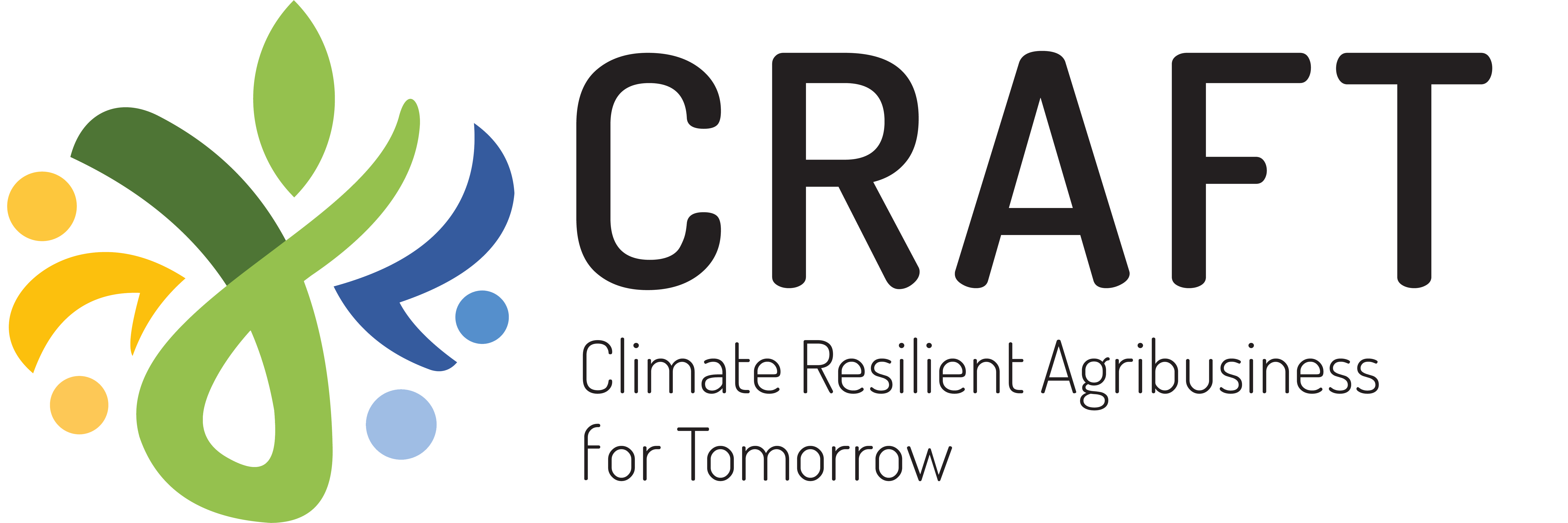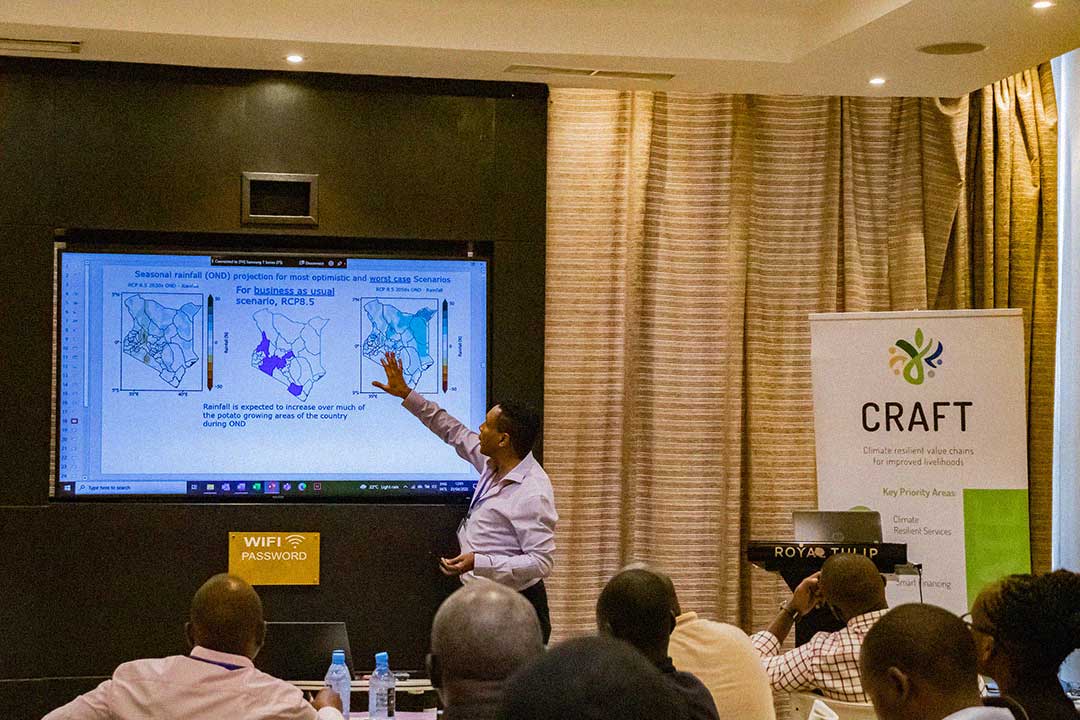Climate change is a global concern that threatens food production at all nodes of production. Therefore, achieving desired and long-lasting adaptive agriculture solutions to the adverse effects of climate change requires that value chain actors understand and have access to evidence-based solutions and information that prepares them to adapt and become more resilient to address climate related risks.
Unfortunately, such climate information services remain largely inaccessible to the majority of agri-value chain actors, yet the sector is heavily dependent on the climate.
This unavailability however does not excuse the fact that such information is crucial since it is fundamental in informing the prioritisation of climate action and investment in adaptation. It also provides opportunities for innovative climate resilient products and services and opens new markets.
For example, with such information, insurance agencies can develop innovative climate-insurance products for communities at increased risk of weather-related natural disasters, while financial institutions can use it to create tailored, affordable, long-term climate smart financial products and services that protect agribusinesses and smallholder farmers against the loss of their crops due to climate change related disasters. On the other hand, technology developers can invent and deploy new water-use efficient irrigation systems to address increased water stresses.
Based on this, the Climate Agribusiness for Tomorrow Project (CRAFT) uses the climate risk assessments (CRAs) concept to explore climate risks and identify suitable adaptation strategies across seven (7) value chains in Uganda, Kenya, and Tanzania, notably: green grams, potato, beans, sesame, sunflower, soybean, and sorghum.
Climate change projections conducted under the CRAFT project in its inception phase in 2019 showed the rate of warming across the three countries, where temperatures were forecast to rise by approximately 2°C over the next 30 years.
The prognoses also showed an overall increase in rainfall during the short rainy season (October, November, and December), particularly in Kenya and Uganda, and longer dry spells coupled with a decline in rainfall during the long rainy season (March, April, May).
Relatedly, recent projects undertaken in 2022 showed similar trends, with temperatures expected to increase by 2°C over the years.
For the project, the findings of the CRAs have warranted a coordinated response for addressing climate risks with the committed engagement of the private sector, smallholder farmers, policymakers, private financiers, and other climate actors on the appropriate choice of practices and strategies that match current and future climate risks and build sustainable food value chains that are resilient.
Oppositely, for project supported smallholder farmers and the private sector, the outcomes of the CRAs have been of immediate relevance and benefit to suitable execution of farming operations, helping them to plan efficiently, minimize costs, and maximise yields and profits. For instance, this information helps the farmers to map areas that are suitable for crop production, whether to undertake or withhold the sowing operation, when and whether to irrigate or not, when to apply fertilizers, and whether or not to start harvesting.
Despite improving access to such information by value chain actors in the East African region, the integration of climate forecast information by the aforementioned target groups into farm and climate investment planning has been poor, largely because of the lack of forecast interpretation skills and the ability to see their relevance.
Laureen Mwikali, the Managing Director of Starlight Farmers’ Cooperative in Kenya attests to this: ‘while many farmers and agribusinesses appreciate the relevancy of such information, language barriers and the inability to access simplified weather data remains our biggest challenge.’
Accordingly, in the second quarter of 2022, CRAFT organised Climate Risk Assessment (CRA) Light Workshops in the three (3) project countries that were guided by the following objectives;
- To enhance understanding of climate change and its implications on food value chains.
- To discuss climate projections and how they can be used to inform climate-related investments in food value chains.
- To establish suitable coping strategies that will increase the adaptive capacity and resilience of the actors.

At the end of the trainings, participants that include smallholder farmers, representatives from government meteorological agencies, agriculture ministries, agribusiness cooperatives and SMEs, researchers, climate scientists, crop breeders and climate smart service providers were equipped with skills in climate related data and information interpretation.
Teferi Demissie, a Climate Scientist and Researcher on the CRAFT Project approved of this strategy and opined that ‘accurate forecasts of climate ahead of time can potentially allow farmers and others in agriculture to make decisions to reduce unwanted impacts or take advantage of expected favourable climate. Hence, the organisation of the CRA Light Workshops by CRAFT was very timely.’
Having attended the training in Uganda, Cyprian Ssekubulwa, a Senior Program Officer Technical Services from the Ministry of Agriculture, Animal Industry and Fisheries was also cognizant of CRAFT’s contribution ‘in supporting government initiatives to back up the competitive, profitable, and sustainable oriented agriculture using climate modelling that predicts climate fluctuations months in advance and suggests areas of risks and improvement.’
Hance Richard, CRAFT’s Project Coordinator at East Africa Fruit and Foods Company (EAFFC) in Tanzania also re-echoed similar sentiments whilst noting; ‘after internalising the suitability maps that were shared by CRAFT, we decided to invest in irrigation facilities, because the forecasts predicted a significant drop in rainfall in our region, which we later experienced. This has ensured all year-round potato production even during the off-season. Additionally, with the knowledge and skills acquired during the CRAs events, we have conducted trainings for our smallholder farmers on the same and procured post-harvest technology that has gone a long way in reducing climate change-induced losses.’
Private sector actors engaged in the project are equally excited by the capacitation they attained at the CRAs as shared by Dr. Moses Biruma, a Senior Research Officer and a sunflower breeder at National Agricultural Research Organisation (NARO) in Uganda.
‘The climate projections shared at the CRA workshops allowed us to explore investment opportunities in climate resilient innovations and technologies that will go a long way in building competitive food value chains. For instance, while the recent suitability map produced under this project on sunflower production indicated that there are increasing cases of drought that are going to affect land quality, especially in the Northern part of the country, this provided us with an opportunity to think through, and come up with varieties that can tolerate the predicated drought and other extreme weather conditions, he said.
Since CRAFT’s contribution to supporting the development and dissemination of relevant climate information services to national and local governments, as well as the private sector to enhance adaptation planning, investment, and resilience building of food value chains is a drop in the ocean, our strong recommendation to development partners and likeminded organizations/interventions is that significant work must be done to invest in climate science in addition to improving climate forecasts in terms of format, and spatial and temporal context for them to be more useful in influencing decision-making by the end users.
--------
The Climate Resilient Agribusiness for Tomorrow (CRAFT), is a five-year project, implemented in Kenya, Tanzania, and Uganda with a focus on three pillars; increasing adoption of climate smart practices and technologies amongst farmers and agro-enterprises; increasing investments and business growth in climate smart value chains; and creating the enabling environment necessary to ensure the large-scale roll-out of market-driven climate smart agriculture.










